Can Dogs Eat Peas and Carrots? (Healthy Snacking)
As pet owners, we are always concerned about the well-being and health of our furry friends. One question many dog owners tend to have is whether it is safe to feed their pets peas and carrots. In this article, we will explore the benefits and potential risks of including these veggies in your dog’s diet and answer some frequently asked questions on the topic.
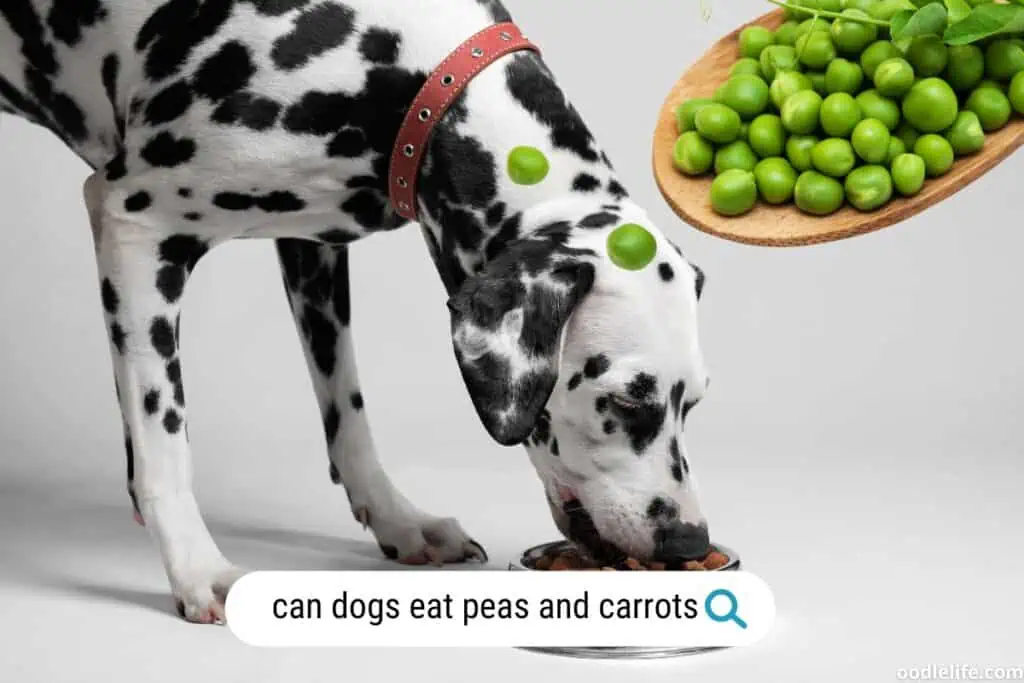
Peas and carrots are nutritious vegetables that can indeed be a part of a dog’s balanced meal plan, as they offer vitamins and minerals that contribute to overall health. However, as with any food, moderation is crucial to ensure your pet does not experience adverse side effects or nutritional imbalances.
Additionally, the preparation of peas and carrots for your dogs matters. It is essential to avoid any added ingredients that may be harmful to them. Let’s dive into the details and address some common concerns, ensuring you have the information you need to make the best dietary choices for your canine companion.
Can Dogs Eat Peas and Carrots?
Many pet owners wonder if they can share their own food with their furry friends. As a dog owner, you might be curious about the safety of feeding peas and carrots to your pet. Are they beneficial or could they cause potential harm?
Health Benefits
Peas and carrots can offer a variety of health benefits for dogs when consumed in moderation:
- Peas: These small legumes are packed with essential vitamins, minerals, and fiber. They can provide a great source of protein and are low in calories, aiding in maintaining a healthy weight.
- Carrots: Rich in beta-carotene, carrots are known for their benefits to eye health. Additionally, they contain vitamin A, fiber, and antioxidants, which can promote immune system health and support digestion.
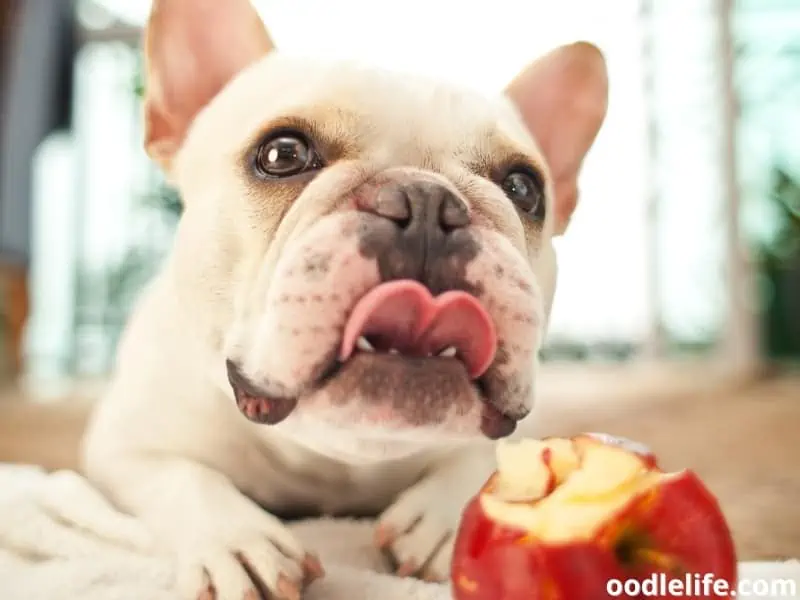
Potential Risks
Although peas and carrots can be healthy additions to a dog’s diet in moderate amounts, there are certain risks to consider:
- Peas: Avoid feeding peas to dogs with kidney issues, as they contain purines that can contribute to kidney stones. Additionally, do not give them canned peas, which may contain extra sodium and preservatives.
- Carrots: Despite their benefits, carrots should be fed cautiously to dogs with diabetes, as they contain natural sugars. Make sure to cut them into small pieces or cook them slightly to prevent choking hazards, especially for smaller breeds.
In conclusion, peas and carrots can be a beneficial addition to your dog’s diet when fed in moderation and with caution. Consult your veterinarian for personalized advice based on your dog’s specific needs.
How to Feed Peas and Carrots to Dogs
Dogs can benefit from the addition of peas and carrots to their diet. However, it’s crucial to prepare and serve them correctly to ensure your dog’s safety and health. In this section, we’ll talk about the preparation methods, serving sizes, and frequency of feeding peas and carrots to your furry friend.
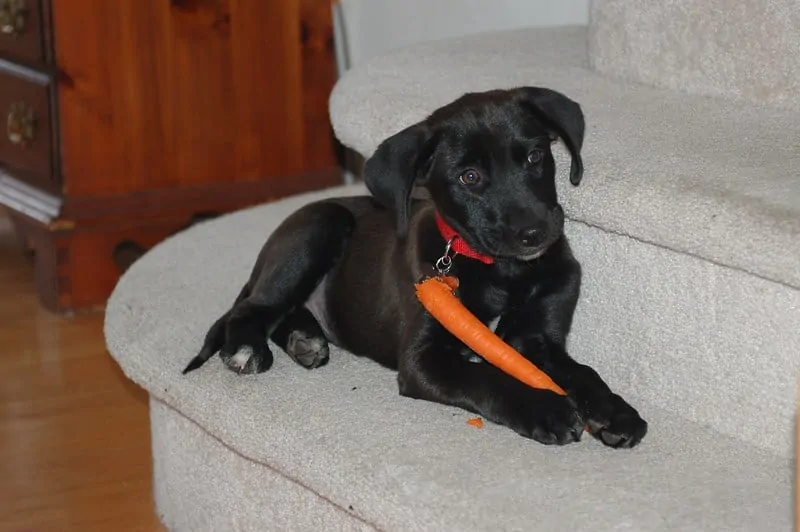
Preparation Methods
Keep in mind, raw peas and carrots might be challenging for your dog to digest. Here are various preparation methods to ensure your dog gets the most out of these nutritious veggies:
- Boiling: Boil peas and carrots in water until they are soft and tender. Make sure not to add any salt or seasoning.
- Steaming: Steam the vegetables until they become soft. This helps retain more nutrients than boiling.
- Mashing: After boiling or steaming, mash the peas and carrots into a smooth puree for easier digestion.
Serving Sizes and Frequency
When introducing peas and carrots to your dog’s diet, moderation is key. Start small and gradually increase the serving sizes:
| Dog Size | Serving Size | Frequency |
|---|---|---|
| Small | 1-2 tbsp | 2-3 times per week |
| Medium | 2-4 tbsp | 2-3 times per week |
| Large | 4-6 tbsp | 2-3 times per week |
Remember, peas and carrots should only be a supplement to your dog’s regular diet, not a replacement for their essential nutritional needs. Consult your veterinarian if you have concerns about the proper serving sizes and frequency for your specific dog breed.
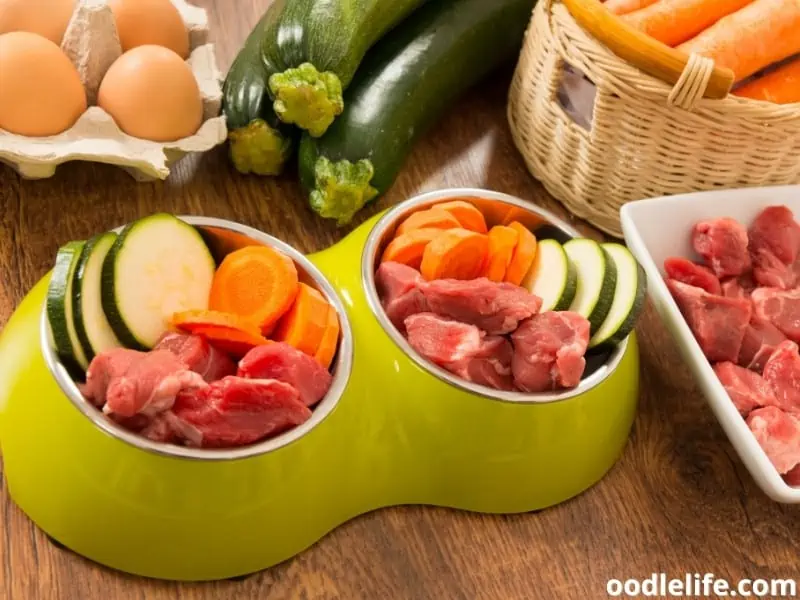
Alternative Vegetables for Dogs
Wondering what other vegetables are safe and beneficial for your furry friend? Here’s a list of some healthy options that you can consider incorporating into your dog’s diet:
- Green beans
- Broccoli
- Brussels sprouts
- Spinach
- Cucumbers
When preparing these vegetables, remember to keep them plain, with minimal seasoning, and cook them thoroughly. Consistently serving raw or undercooked vegetables may lead to digestive problems for your pet.
| Vegetable | Benefits |
|---|---|
| Green beans | High in fiber, low in calories |
| Broccoli | Rich in vitamins and minerals, anti-inflammatory properties |
| Brussels sprouts | Contains antioxidants and supports a healthy digestive system |
| Spinach | High in nutrients, supports heart health |
| Cucumbers | Low in calories, helps keep your dog hydrated |
Are there any vegetables you should avoid giving to your dog? It’s important to be aware of which vegetables can be potentially harmful to your pet. Some examples of vegetables to avoid include onions, garlic, and mushrooms, as they can be toxic to dogs.
Here’s a table of vegetables that dogs can and cannot eat. Please note that while some vegetables are safe for dogs to consume, they should be given in moderation and as part of a balanced diet. It’s always best to consult with your veterinarian before making significant changes to your dog’s diet.
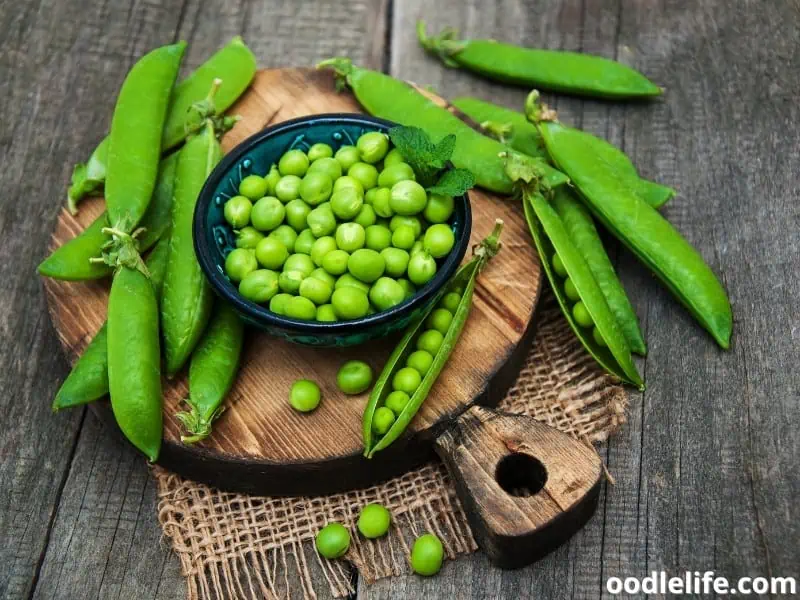
| Safe Vegetables for Dogs | Unsafe Vegetables for Dogs |
|---|---|
| Carrots | Onions |
| Green Beans | Garlic |
| Cucumbers | Leeks |
| Sweet Potatoes | Chives |
| Peas (cooked & without pods) | Wild Mushrooms |
| Pumpkin (cooked & without skin) | Rhubarb Leaves |
| Zucchini | Avocado |
| Brussels Sprouts (cooked) | Raw/Unripe Potatoes |
| Broccoli (in small amounts) | Tomato (leaves & stems) |
| Spinach (in small amounts) | Asparagus (in large amounts) |
| Bell Peppers (not spicy) |
Remember that each dog is unique, and individual dogs might have allergies or sensitivities to certain vegetables not listed as unsafe. Always monitor your dog’s reaction when introducing new foods, and if you’re unsure, consult your veterinarian.
FAQs
Are peas and carrots safe for dogs to eat?
Yes, dogs can eat peas and carrots in moderation. Both vegetables provide essential nutrients and can be a healthy addition to your dog’s diet.
What are the benefits of peas and carrots for dogs?
- Peas: Rich in vitamins A, K, and C, and provide protein, dietary fiber, and essential minerals.
- Carrots: High in vitamin A, potassium, and fiber, which help improve eyesight, digestion, and immune system in dogs.
How should peas and carrots be served to dogs?
Steam or boil them without adding salt, sugar, or other seasonings. Raw carrots can also be given as a crunchy snack, while garden peas can be added to their regular food.
What about canned peas and carrots?
Avoid giving your dog canned peas and carrots, as they can contain preservatives, salt, and added sugars that are not healthy for your furry friend.
Are there any potential risks of feeding peas and carrots to dogs?
Yes, overfeeding can lead to excess nutrients or potential choking hazards. Always supervise your dog while consuming veggies, and consult your vet if you have any concerns or questions.